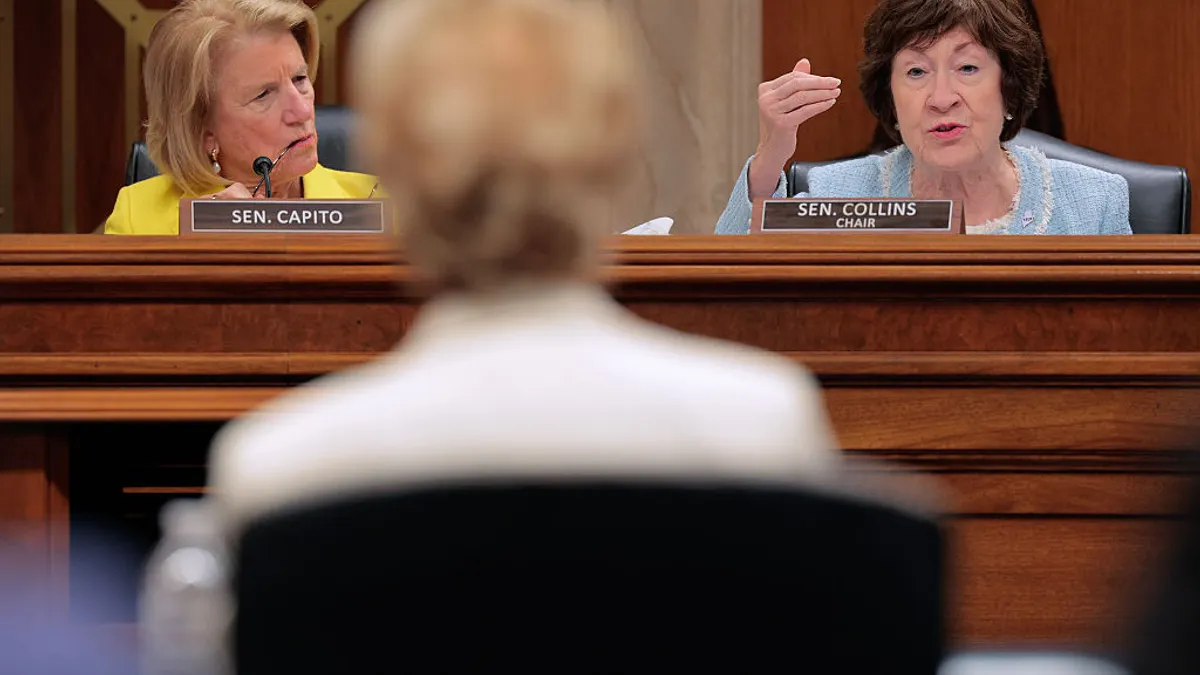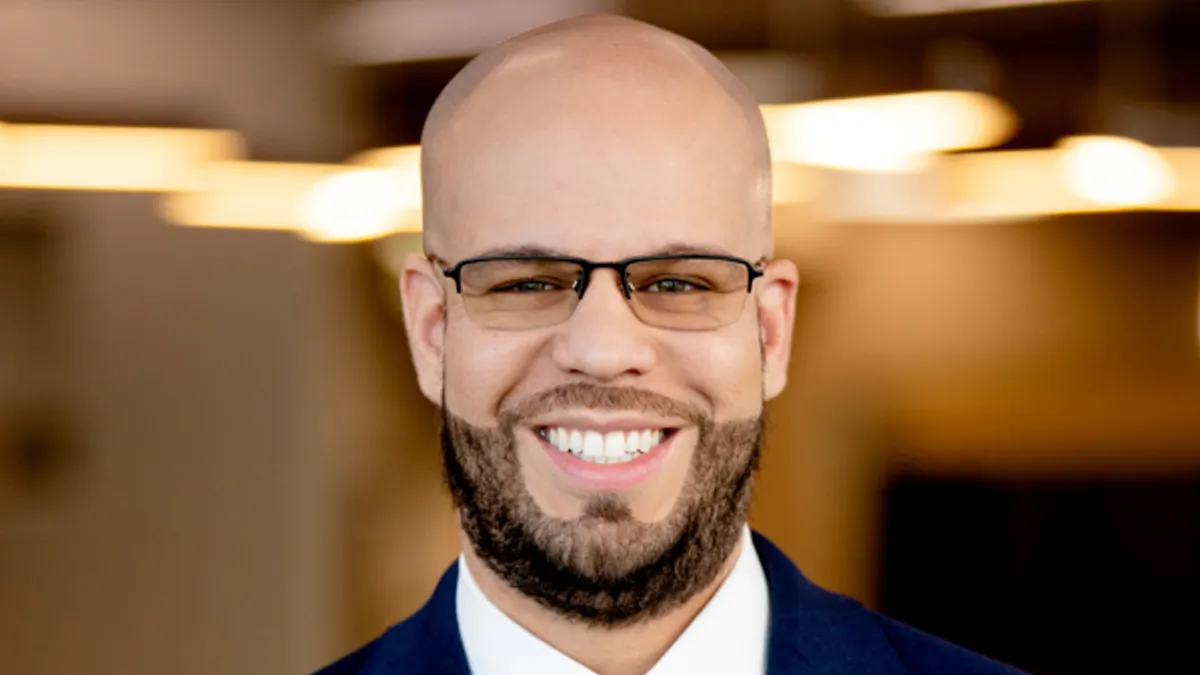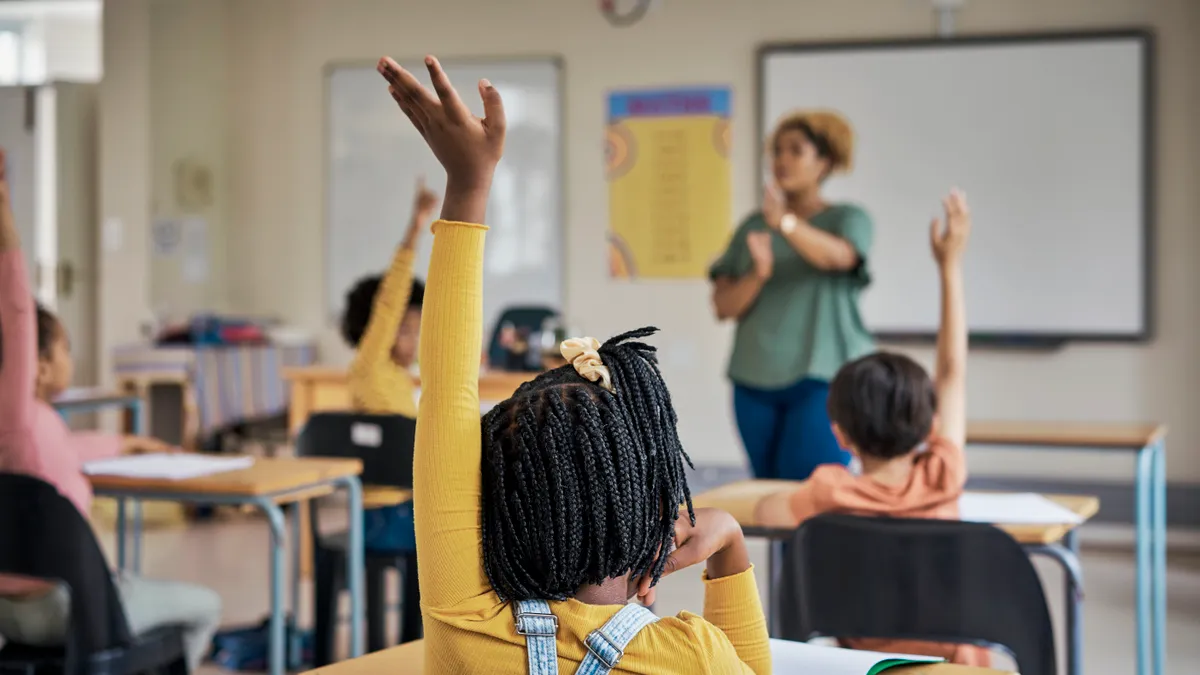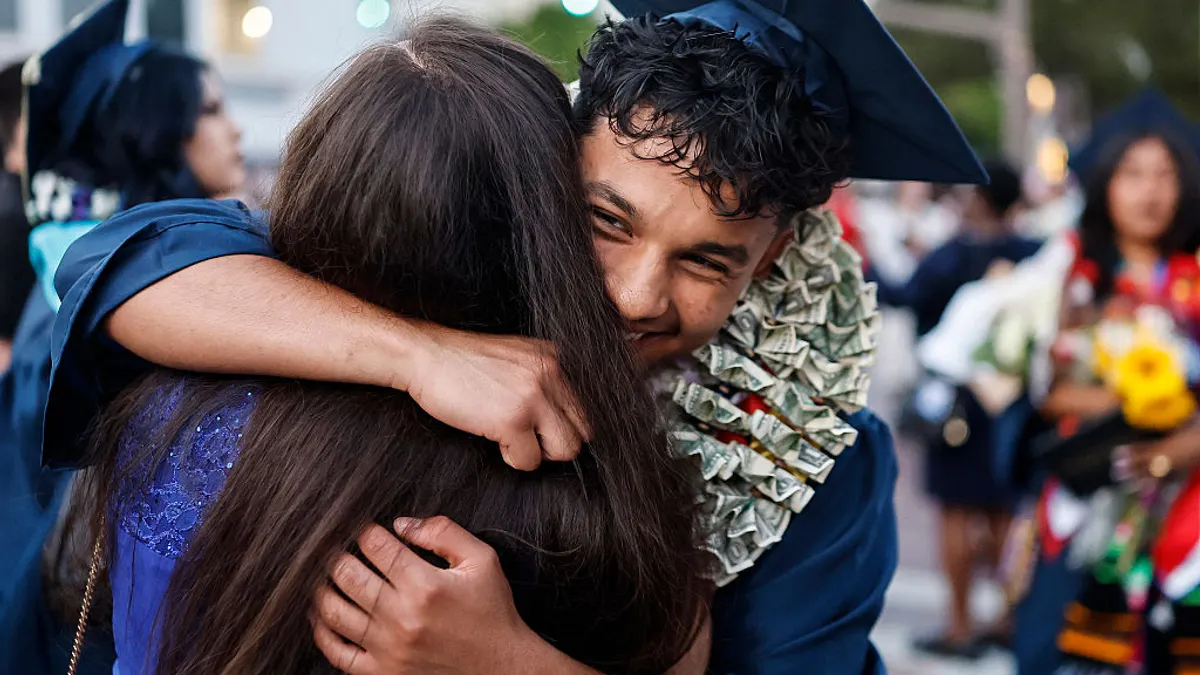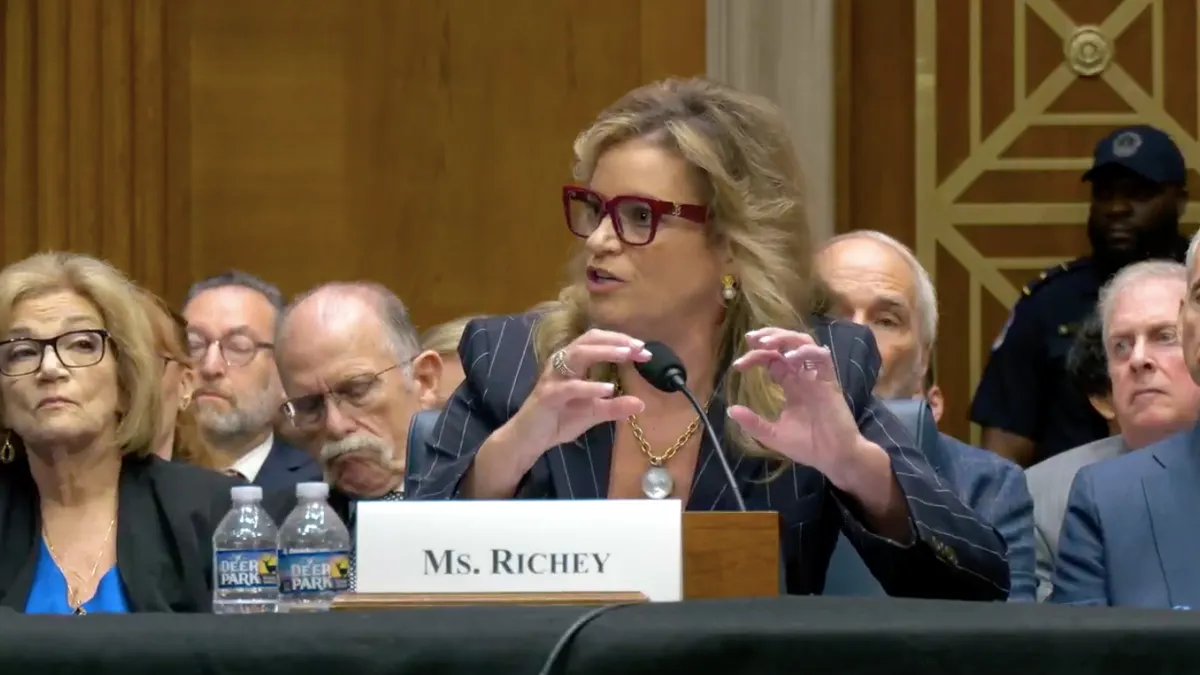In a Thursday afternoon virtual session during the National Principals Conference, two Philadelphia administrators discussed the importance of school leaders adopting an equity mindset to address key social, cultural, economic and environmental challenges that impact the success of all students.
Richard Gordon, principal of Philadelphia's Paul Robeson High School, highlighted the importance of learning conditions for student success and drew attention to the stark differences of building conditions between schools in Philadelphia and those in the better-funded surrounding suburbs.
Sharif El-Mekki, an administrator who now serves as CEO of the nonprofit Center for Black Educator Development, focused on how crucial teacher diversity is not just from the perspective of same-race teachers' impacts on students facing marginalization, but on White colleagues who learn from diverse educators near them and improve how they engage with communities and build relationships as a result.
A report issued in 2017 detailed how Philadelphia's schools need an estimated $5 billion in repairs, with around 75% of schools in disrepair due to delayed maintenance. Highlighting the state some schools are in, Gordon showed attendees a Now This News video published in 2019, documenting mold, asbestos and leaks during a walkthrough of one school building by Pennsylvania State Sen. Vincent Hughes.
El-Mekki asked how, when students in crumbling schools look around themselves, they should be expected to see the condition of the buildings they're in and not think, “This is what society thinks of me.”
The principalship is now in the position of having to be the advocate for students on equity, said Gordon, who is also the National Association of Secondary School Principals' 2021 Principal of the Year and K-12 Dive's 2017 Administrator of the Year. He added that it's his job, regardless of the circumstances, to provide access to resources students need both inside and outside of the classroom.
Many of Paul Robeson High School's students live in some of Philadelphia's poorest neighborhoods, which also impacts health outcomes, employment prospects and exposure to crime. In 2013, the school had been slated for permanent closure by the School District of Philadelphia. It was ultimately spared and placed under Gordon's leadership.
With a focus on promoting an all-inclusive family atmosphere, community service learning, civic responsibility, and individual evaluations of each student to help them lay out a personal college and career plan, Gordon and his staff oversaw an impressive turnaround that included a 98% graduation rate, 50% college attendance rate, a suspension rate that fell below 5%, and a 22% decline in truancy.
Gordon also stated that principals must ask themselves whether they want to be leaders or managers, and that they must also consider how to address learning experiences to make sure the right opportunities are provided for students, and that students are learning how to be the best individuals they possibly can.
Whatever it is our students want to engage in across a variety of personal goals, school leaders have to seek the resources to provide pathways to those opportunities, Gordon continued — and that's where community partnerships come into play for his school.
He also praised the role of his faculty and staff in creating an equity mindset at Paul Robeson High School. Progress in a school can’t happen without having an extremely collaborative team in place, one that is committed to diversity and equity and reflective of your school’s values and the kids you serve, Gordon said.
As head of the Center for Black Educator Development, El-Mekki is also keenly aware of the role relationships play in building equity mindset among students and staff. Teacher diversity is crucial, both for the engagement and success of students facing marginalization, as documented by the research of Constance Lindsay, and for the White colleagues of teachers of color who learn valuable lessons on how to engage with communities and build relationships.
Recruiting Black students to pursue careers in education, however, can be a challenge in itself, El-Mekki said, citing Christopher Emdin of Teachers College at Columbia University, who has said that this can sometimes feel like inviting them back to the scene of a crime committed against them.
So while the Center For Black Educator Development's goals include increasing Black high school students’ interest levels in the education profession, the number of Black college students majoring in education, and the number of Black men and women earning teacher certifications annually, other systemic changes must occur to support those efforts.
To facilitate that, he posed five essential questions to consider in building an equity mindset in schools:
- What are ways you neglected to agitate for change in the past and what are your commitments now?
- What is an additional anti-racist stance you’ll practice this school year?
- Mentally audit your classroom. What are the additional mirrors you will consistently create for Black and brown students?
- How will you converse with your students about considering the field of education?
- No matter where your class is on the continuum of a fully inclusive and anti-racist community, what can you change to improve your class for Black and brown and other marginalized students?







 Dive Awards
Dive Awards


